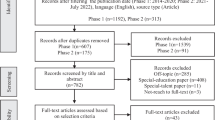Abstract
Online learning has become an essential part of all levels of education today. However, whether an instructor should appear or not during online teaching is a dispute. Some empirical studies show that instructor presence enhances learning outcomes and engagement of students, while others reveal that instructor presence or not does not affect learning outcomes. Some studies support the presence of the instructor because the presence of the instructor provides social cues to the learners. On the contrary, others are against instructor presence because instructor presence distracts students from learning content. Therefore, it is necessary to clarify when teachers should or should not appear in videos during online teaching. This article explores the effectiveness of instructor presence in video based on multimedia learning theory. To simplify the problem, we adopt two media channels: audio and video. For a single channel alone, an additional coherent channel will enhance online learning, while a disjointed channel will hinder learning. However, additional sources from the same channel can hinder learning. Time is also a critical factor do decide on the presence of an instructor. If a screen does not appear for enough time, students cannot finish reading and may feel stressed. On the other hand, if the same screen stays on for a long time, students can feel bored. Therefore, the media channels, the media sources, and their duration decide whether an instructor should appear in a video for online learning. This concise principle can explain the dispute about the presence of an instructor during online learning. In addition, it can guide instructors on when they should present in online learning.
Access this chapter
Tax calculation will be finalised at checkout
Purchases are for personal use only
Similar content being viewed by others
References
Martin, F., Wang, C., Sadaf, A.: Student perception of helpfulness of facilitation strategies that enhance instructor presence, connectedness, engagement and learning in online courses. Internet High. Educ. 37, 52–65 (2018)
Wang, J., Antonenko, P.D.: Instructor presence in instructional video: effects on visual attention, recall, and perceived learning. Comput. Hum. Behav. 71, 79–89 (2017)
Wilson, K.E., Martinez, M., Mills, C., D’Mello, S., Smilek, D., Risko, E.F.: Instructor presence effect: liking does not always lead to learning. Comput. Educ. 122, 205–220 (2018)
Ndibalema, P.: Constraints of transition to online distance learning in higher education institutions during COVID-19 in developing countries: a systematic review. E-Lear. Digit. Media 19(6), 595–618 (2022)
Singh, M., Adebayo, S.O., Saini, M., Singh, J.: Indian government E-learning initiatives in response to COVID-19 crisis: a case study on online learning in Indian higher education system. Educ. Inf. Technol. 26(6), 7569–7607 (2021)
Flores, M.A., et al.: Portuguese higher education students’ adaptation to online teaching and learning in times of the COVID-19 pandemic: personal and contextual factors. High. Educ. Int. J. High. Educ. Res. 83(6), 1389–1408 (2022)
Jiang, H., Islam, A.Y.M.A., Gu, X., Spector, J.M.: Online learning satisfaction in higher education during the COVID-19 pandemic: a regional comparison between eastern and western Chinese Universities. Educ. Inf. Technol. 26(6), 6747–6769 (2021)
Singh, V., Thurman, A.: How many ways can we define online learning? A systematic literature review of definitions of online learning (1988–2018). Am. J. Distance Educ. 33(4), 289–306 (2019)
Mayer, R.E.: Using multimedia for e-learning. J. Comput. Assist. Learn. 33(5), 403–423 (2017)
Makransky, G., Mayer, R.E.: Benefits of taking a virtual field trip in immersive virtual reality: evidence for the immersion principle in multimedia learning. Educ. Psychol. Rev. 34(3), 1771–1798 (2022)
Anmarkrud, Ø., Andresen, A., Bråten, I.: Cognitive load and working memory in multimedia learning: conceptual and measurement issues. Educ. Psychol. 54(2), 61–83 (2019)
Berssanette, J.H., de Francisco, A.C.: Cognitive load theory in the context of teaching and learning computer programming: a systematic literature review. IEEE Trans. Educ. 65(3), 440–449 (2022)
Paivio, A.: Dual coding theory, word abstractness, and emotion: a critical review of Kousta et al. (2011). J. Exp. Psychol. 142(1), 282–287 (2013)
Paivio, A.: Dual coding theory: retrospect and current status. Can. J. Psychol./Revue canadienne de psychologie 45(3), 255 (1991)
Paivio, A.: Intelligence, dual coding theory, and the brain. Intelligence 47, 141–158 (2014)
McClelland, M.M., Acock, A.C., Piccinin, A., Rhea, S.A., Stallings, M.C.: Relations between preschool attention span-persistence and age 25 educational outcomes. Early Child. Res. Q. 28(2), 314–324 (2013)
Subramanian, K.R.: Myth and mystery of shrinking attention span. Int. J. Trend Res. Dev. 5(3), 1–6 (2018)
Bester, G., Brand, L.: The effect of technology on learner attention and achievement in the classroom. South Afr. J. Educ. 33(2), 1–15 (2013)
Bradbury, N.A.: Attention span during lectures: 8 seconds, 10 minutes, or more? Adv. Physiol. Educ. 40(4), 509–513 (2016). https://doi.org/10.1152/advan.00109.2016
Geri, N., Winer, A., Zaks, B.: Challenging the six-minute myth of online video lectures: can interactivity expand the attention span of learners? Online J. Appl. Knowl. Manage. (OJAKM) 5(1), 101–111 (2017)
Jain, A.K., Mao, J., Mohiuddin, K.M.: Artificial neural networks: a tutorial. Computer 29(3), 31–44 (1996)
Ng, Y.Y., Przybylek, A.: Instructor presence in video lectures: preliminary findings from an online experiment. IEEE Access 9, 36485–36499 (2021)
Acknowledgement
Yongbin Zhang thanks Beijing Municipal Education Commission (Grant No. 2021149), Beijing Higher Education Academy (MS2022398), and Beijing Institute of Graphic Communication (Grant No. 20231001) for supporting this research. Xiuli Fu appreciates the help from teachers and students participating in the survey.
Author information
Authors and Affiliations
Corresponding author
Editor information
Editors and Affiliations
Rights and permissions
Copyright information
© 2023 The Author(s), under exclusive license to Springer Nature Singapore Pte Ltd.
About this paper
Cite this paper
Zhang, Y., Fu, X., Wei, L., Zheng, Y. (2023). An Innovative Model for Teacher Presence or Not in Video for Online Instruction Based on Neural Theory. In: Schlippe, T., Cheng, E.C.K., Wang, T. (eds) Artificial Intelligence in Education Technologies: New Development and Innovative Practices. AIET 2023. Lecture Notes on Data Engineering and Communications Technologies, vol 190. Springer, Singapore. https://doi.org/10.1007/978-981-99-7947-9_5
Download citation
DOI: https://doi.org/10.1007/978-981-99-7947-9_5
Published:
Publisher Name: Springer, Singapore
Print ISBN: 978-981-99-7946-2
Online ISBN: 978-981-99-7947-9
eBook Packages: EducationEducation (R0)




